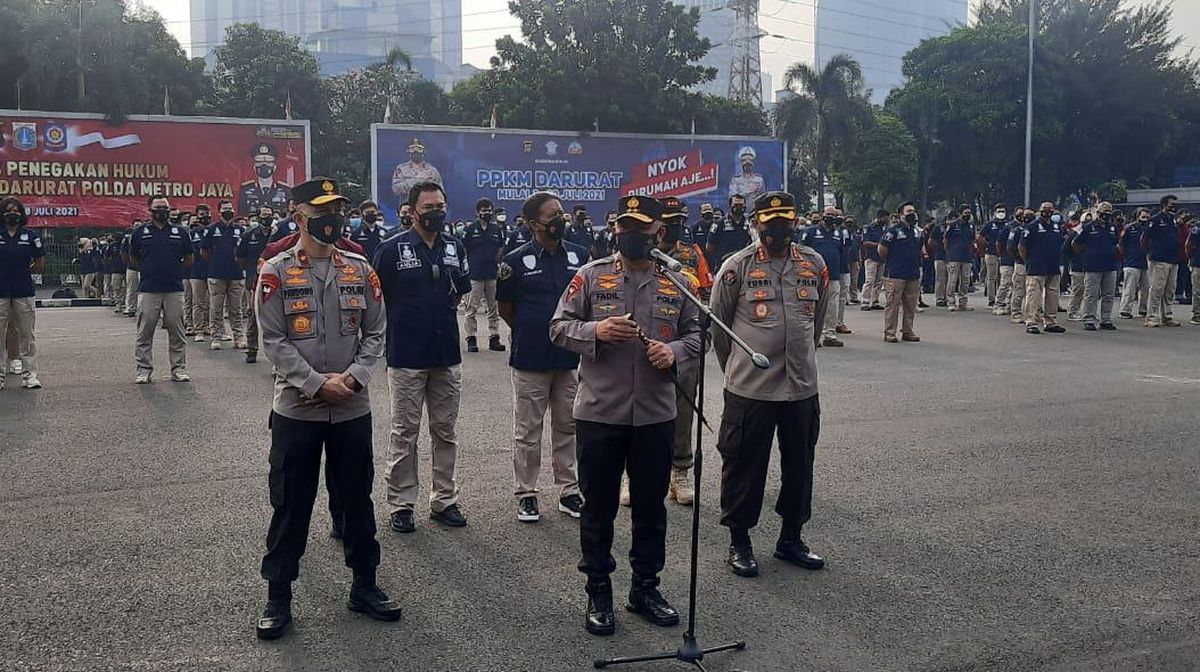Jakarta – Polda Metro Jaya will tighten supervision of non-essential and non-critical offices operating during emergency PPKM. Until now, there are dozens of companies in the investigation stage of emergency PPKM violations.
“There are already 21 companies that have received fingerprints (investigations),” said Metro Jaya Police Chief Inspector General Fadil Imran at the Metro Jaya Police Precision Field, Jakarta, Thursday (8/7/2021).
Fadil said that his party would look for suspects in the emergency PPKM violation related to this non-essential company. The company’s bosses were targeted by the police.
“We will find out who the suspects are among these skippers. We urge the public to reduce mobility. Stay safe at home, this is the key,” said Fadil.
It is not without reason that the company’s boss is considered the most responsible for the health and safety of its workers if they are still asked to have an office.
“The fault is not the employee. The fault is the employer who keeps ordering them to come to work. Therefore, yesterday we did not process it. We recorded the name of the company, the address, today we visited,” said Fadil.
So far the police have imposed sanctions on 2 non-essential companies that violate the emergency PPKM. The two companies have the initials PT DPI in Tanah Abang, Central Jakarta, and PT LMI in Sudirman, Central Jakarta.
Office Comb in a Skyscraper
Polda Metro Jaya evaluated a number of records in the implementation of the emergency PPKM, which entered its sixth day. One of them is related to the implementation of supervision and law enforcement in non-essential and non-critical office environments during emergency PPKM.
“We will optimize emergency PPKM, especially in office buildings. How do we know, the rate of spread of COVID-19 in Jakarta is getting higher day by day. Let’s comb the skyscraper office buildings like the one in front of this,” said Fadil.
According to Fadil, the policy of isolation and community-based supervision during an emergency PPKM will end in vain if non-essential and non-critical offices continue to operate. For this reason, supervision at these locations must be immediately tightened.
“The results of field observations show that there are still many people who work on the streets because they are ordered to do so, ordered by their superiors or employers. Tightening should not only be done on a community basis, it should not only be in RT and RW. It’s a waste if your boss keeps telling you to work,” explained Fadil.









